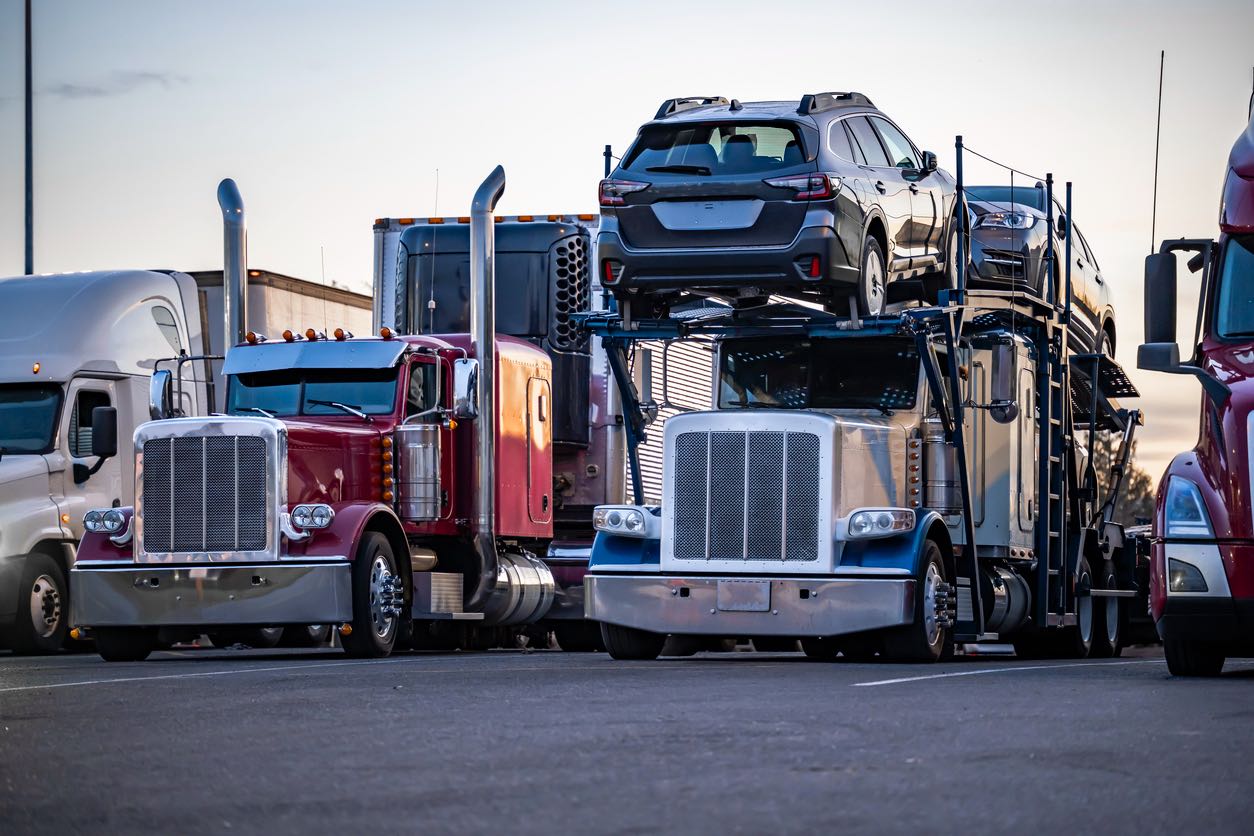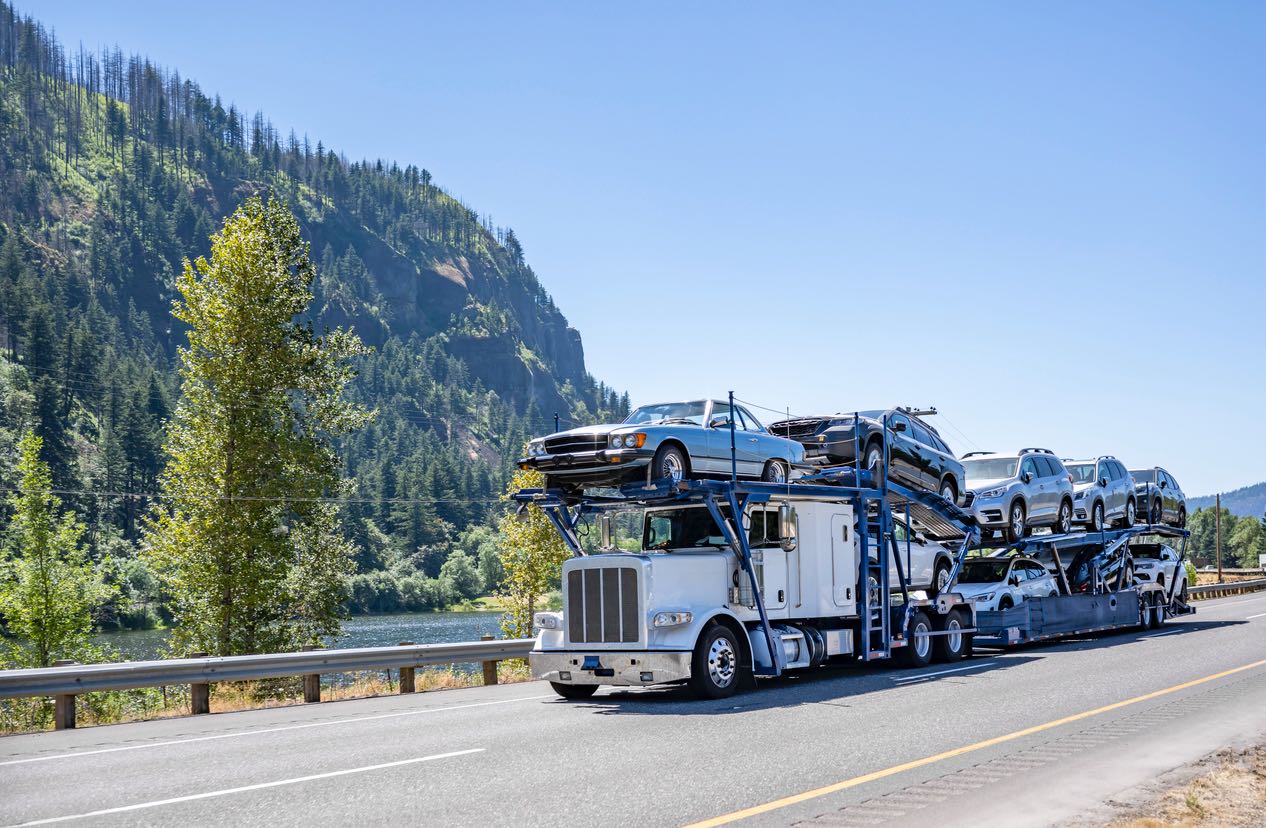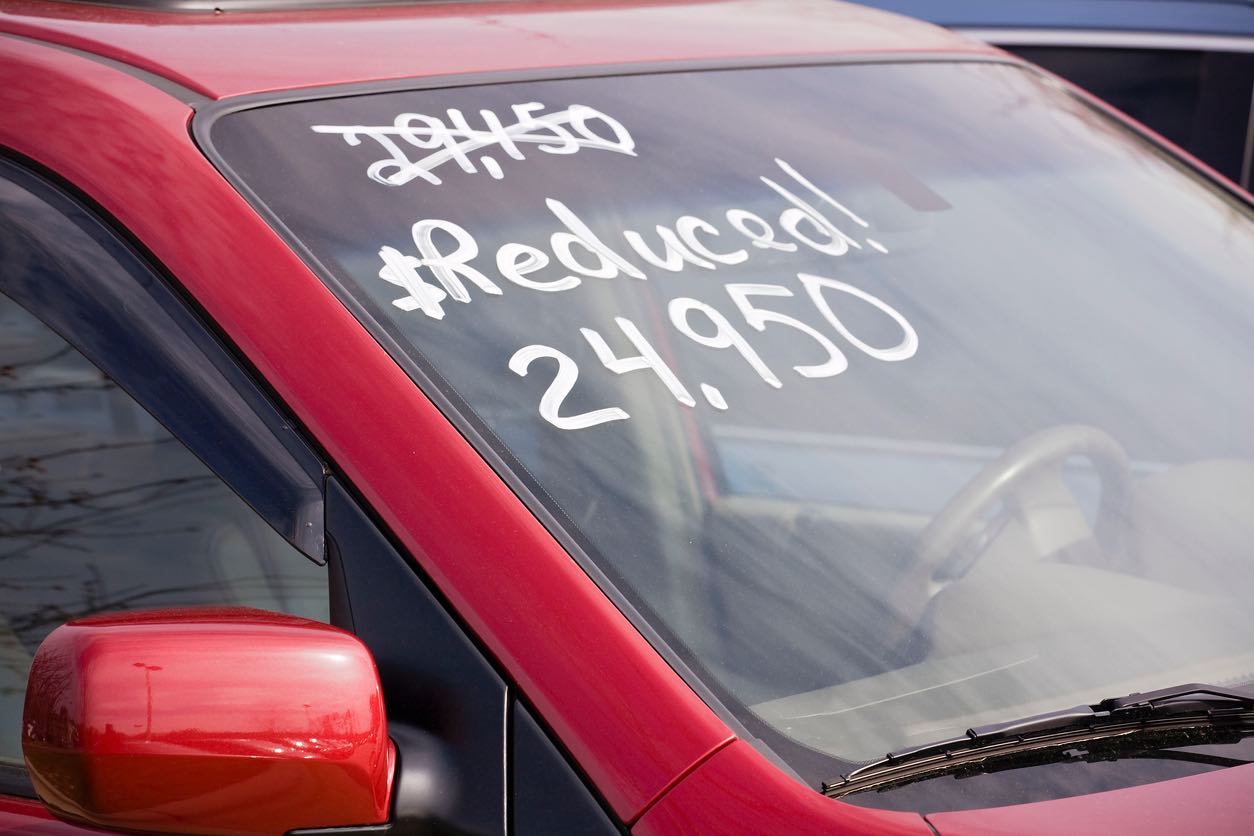Buying a car is a big choice that frequently requires a driver’s license. Certain situations, nevertheless, permit purchasing an automobile without one. This review explores the viability, difficulties, and tactics of buying an automobile in the United States in such circumstances. Although less common, the path to owning a car without a regular driver’s license is not completely unknown. We’ll explore the practical and legal ramifications of these transactions as we proceed, offering guidance to anybody who might come across this unusual circumstance.
Owning a car without being able to legally drive it may seem illogical, but there are a number of good reasons and situations when this makes sense. For example, the owner may not need a license if they are buying an automobile as a present, buying a car for commercial use, or adding an antique treasure to their collection. We will go into great depth about the problems and solutions that each scenario brings. With this guide, prospective automobile owners will have a clearer understanding of the road ahead and be more equipped to handle the challenges involved in this unconventional approach to car ownership.

It is not very frequent, however it is possible to purchase an automobile without a driver’s license. Finding out that getting a driver’s license is not a requirement for buying a car surprises a lot of people. This section examines potential situations where this may happen, providing insight into the motivations behind and methods used by people in this seemingly out-of-the-ordinary behavior.
- Purchasing Vehicles as Gifts: Purchasing a car as a surprise gift for a loved one is common. The buyer is not need to have a driver’s license in certain situations. The important thing to remember in this situation is that the person receiving the automobile should ideally hold a driver’s license in order to manage the ensuing registration and insurance procedures. With this strategy, the car may be transferred easily and effectively as a heartfelt and significant present.
- For Business Needs: Vehicles are usually needed by businesses for operational needs including staff transportation and the transportation of commodities. It is possible for a company owner to buy a car without a personal driver’s license. All staff must, however, drive the car themselves and have valid driver’s licenses. This scenario promotes operational efficiency without requiring the buyer to get a license.
- Purchasing for Minors: Teenage children who have recently gotten their driver’s licenses are frequently bought cars by their parents or guardians. Even if the kid could possess a license, the adult usually has the greater purchasing power and financial responsibility. This arrangement guarantees young drivers have safe and dependable transportation while also fostering responsibility in them.
These situations show that although obtaining a license is necessary for driving, it is not necessary to acquire a car. A car can be purchased by someone without a driver’s license for a variety of reasons, each of which demonstrates the flexibility and variety of demands that come with being a car owner.

Having an automobile without a license presents a number of significant legal issues, especially with regard to insurance and registration. This section explores these nuances in more detail and offers advice on how to handle them successfully with the assistance of reliable, licensed people.
- Insurance Arrangement Challenges: For an unlicensed driver, getting insurance is a challenging task. To provide a policy, the majority of insurance companies need a valid driver’s license since it verifies the applicant’s identification and driving record, both of which are essential for risk assessment. This need can be avoided, though, if a licensed driver consents to serve as the principal policyholder. This configuration allows you to be designated as an excluded driver on the insurance policy, which guarantees coverage for the automobile even if you don’t drive it.
- Role of Trusted Licensed Individuals in Insurance: The engagement of a reliable, licensed person is essential to getting insurance. This individual serves as your policy’s principal driver, which may greatly streamline the insurance application process. Selecting a dependable individual with a spotless driving record is crucial for reducing insurance expenses and guaranteeing coverage integrity. To prevent future disagreements or legal issues, this arrangement has to be managed with explicit agreements.
- Complexities in Vehicle Registration: It’s usually more difficult to register a car without a license than to get auto insurance. To complete a vehicle’s registration, the Department of Motor Vehicles (DMV) often needs proof of insurance and a valid driver’s license. But you may register the car using a reliable licensed driver, just like with insurance. This person would be the official face of the car’s registration, handling DMV procedures on your behalf.
- Navigating Ownership and Registration Risks: There are possible hazards associated with using a third party for registration, especially when it comes to ownership rights. Depending on the state’s rules and the registration data, the individual registering the car under their name may have full or partial ownership rights. It’s critical to have a precise contract that specifies each party’s obligations and rights with relation to the vehicle. Selecting a “or” or “and” indication in the ownership documentation is important since it dictates how actions like selling the car may be carried out lawfully.
All these considerations highlight how important it is to prepare ahead and have trust in the other person when you include them in the legal procedures of owning a vehicle without a driver’s license. To ensure that all legal grounds are covered and to traverse these waters with ease, it is necessary to seek the advice of legal specialists or a reliable adviser.

Selecting the ideal car model requires taking into account the vehicle’s intended purpose, whether it be for personal, professional, or collector’s use. To make sure your purchase is both worthwhile and practical, this section offers advice on how to choose the best car for the job. When selecting a car without a driver’s license, take into account the following important considerations:
- Personal Use: Consider the car’s size and fuel economy if it will be used for personal travel. If your primary use for the vehicle will be in cities, a smaller vehicle may be more inexpensive and manageable. Additionally, take into account the comfort amenities it provides, which may significantly improve your everyday commutes or leisure trips. These features include air conditioning, plenty of legroom, and cutting-edge safety measures.
- Business Needs: Reliability and usefulness are more important for corporate use. It is important to have a vehicle that can meet the needs of everyday operations and the transfer of persons or cargo. It’s also important to think about branding; a vehicle that complements the image of your business might improve your professional appearance. For companies that need to carry goods, a sturdy pickup truck or a van with lots of cargo room can be perfect.
- Collector’s Item: The main factors to take into account when buying a car as a collector’s item are frequently its historical relevance and possible value growth. Examine the car’s potential for appreciation, history of upkeep, and uniqueness. Collector automobiles are more about investment and passion than utility. To preserve the vehicle’s condition, storage choices and preservation techniques must be taken into account.
- Family Considerations: Safety and room are the most important considerations when purchasing a car for a family. Seek out vehicles with excellent safety ratings and sufficient space to comfortably fit every member of the family. It’s crucial to have features like many airbags, dependable brakes, and enough space for car seats.
- Environmental Impact: Take into consideration hybrid or electric versions if you’re worried about the environment. These vehicles save carbon emissions and frequently come with incentives like tax breaks. Those who desire an investment that will last for the future but do not intend to drive can consider purchasing an electric vehicle (EV).
It is important to thoroughly consider each of these factors to make sure the vehicle you have chosen fits your needs even if you don’t need to drive it right away. You may optimize the advantages of your purchase—whether for long-term investment, company productivity, or personal fulfillment—by following this meticulous selection method.

When thinking about buying a car—new or used—without a driver’s license, it’s important to know the implications for your finances. This part examines the important variables to consider, offering an evaluation of the state of the market and suggestions for making economical decisions.
- Initial Cost and Depreciation: Buying new means you’re getting a car that has never been owned before, so the upfront cost is higher but the depreciation is slower right away. But in the first year, brand-new cars might lose up to 20% of their value. Used automobiles, on the other hand, are less expensive in terms of lost value over time since they have already seen substantial depreciation and have a lower initial cost.
- Insurance Costs: A new car’s insurance usually costs more than that of an old one because of the increased value and possible costs for repairs or replacement parts. But, since it can have a big impact on overall expenses, the difference in insurance rates between new and used automobiles should be carefully studied by someone who isn’t driving the car.
- Warranty and Maintenance: Manufacturer warranties, which may be quite beneficial financially, cover the majority of major repairs on new automobiles for a certain amount of time. However, secondhand vehicles could not be covered by a guarantee, which means that any repairs required soon after purchase could raise the final cost. However, extended warranties are available for many used automobiles and may be purchased for an extra fee.
- Long-term Value and Usage: A new car’s depreciation may not offset its greater initial cost if it is not intended for frequent usage, as may be the case when purchased without a license. Given that they demand less money up front and degrade more slowly over time, used cars may provide superior value in certain situations.
- Market Trends: It’s important to take into account current market trends. For example, new automobile costs have increased as a result of the persistent scarcity of microchips that affects the manufacture of new cars. Because of this trend, used automobiles are becoming an even more appealing financial alternative. Geographical variables are also important to take into account because certain states, like New Hampshire, have advantages over others in terms of reduced pricing for used automobiles.
This investigation shows that sticker price is not the only factor to consider when deciding between new and used purchases. It entails taking into account a variety of financial aspects, such as market circumstances, insurance costs, maintenance, and depreciation, all of which are crucial in assessing the purchase’s overall economic viability.

Delivering a recently acquired vehicle to your residence or place of work without a driver’s license poses several difficulties. The logistics of vehicle delivery services are explained in the section below, along with how to choose the best service for your needs based on the kind of car you bought and your unique circumstances.
Choosing the Right Delivery Service: Depending on the type of vehicle and your financial situation, choosing the right car shipping provider is essential. Considerations include the vehicle’s worth, the delivery distance, and the timing of the car’s delivery.
Enclosed vs. Open Transport:
- Enclosed Transport: Because it shields the vehicle from the elements and road debris, this choice is perfect for brand new, expensive or collector vehicles. Although enclosed transportation is more costly, it is advised for pricey or sentimental automobiles to guarantee that they arrive in perfect condition.
- Open Transport: Open carrier transport is more economical but exposes cars to the elements; it works best for regular models and/or short trips. It is a well-liked option for daily drivers and strikes a balance between price and security.
Scheduling and Timing: Depending on the delivery route and the service provider, delivery timeframes might differ significantly. It’s critical to agree on a time in advance so that the delivery coincides with your availability.
- Immediate Delivery: Certain companies provide accelerated shipping choices for customers that want prompt pickup and delivery. Although it usually costs extra, doing this guarantees that your car will be there when you need it.
- Standard Delivery: Standard delivery alternatives that are most economical may require waiting for a full load before the transport truck leaves. This can save money, but your total car transport time must be flexible.
Cost Considerations: Numerous variables, such as the kind of transportation, the distance traveled, and certain service options like expedited delivery, can affect the price of auto delivery services.
- Distance and Route: Delivery costs often rise with longer delivery distances and less-traveled routes. The increased demand for urban routes usually results in more competitive pricing.
- Service Extras: The price may increase for extra services like door-to-door delivery and pickup, accelerated service, or special handling for unusual automobiles. Based on your requirements and financial constraints, choose which services are necessary and which are optional.
Insurance and Safety: Another crucial part of automobile delivery is making sure your car is insured for the duration of transportation.
- Insurance Coverage: Verify if the shipping company provides full insurance that protects against damage sustained in route. To make sure you have enough protection, it is a good idea to know the details of the policy. If you feel that you need more insurance protection, as your transport coordinator if they offer additional insurance coverage options.
- Safety Records: Examine the client testimonials and safety records of the transportation provider. It is more probable that a supplier with a solid reputation and glowing reviews would deliver your car promptly and securely.
Even if you are unable to drive yourself, you may choose a car delivery service that fits your needs and ensures that your vehicle arrives safely and effectively by carefully weighing these considerations.

Although difficult, getting auto insurance without a license is not impossible. Even though getting vehicle insurance usually requires having a driver’s license, there are several situations and ways that those without a license can get around this obstacle. This section explores the practical and legal ramifications of arranging insurance through a licensed driver, providing further details on the process.
Choosing a Suitable Proxy Driver
- Finding the Right Licensed Driver: Finding a trustworthy licensed driver is the first step in obtaining insurance without a personal driver’s license. This person may be listed as the vehicle’s principal driver. Selecting an individual with a clean driving record is essential to guarantee less insurance costs and fewer issues with the insurance company.
- Understanding the Responsibilities Involved: Selecting a proxy driver entails that this person will bear the insurance company’s responsibility for the car. They have to accept their responsibility and be fully aware that any violations or events might have an impact on their insurance premiums and driving record.
Navigating the Insurance Process
- Initiating the Insurance Policy: Once a proxy driver has been chosen, the following course of action is to contact insurance providers who will insure a car with an unlicensed owner. In-depth conversations may be necessary to clarify the ownership and driving characteristics of the vehicle.
- Policy Considerations and Costs: It’s crucial to give serious thought to the coverage options when setting up the insurance. Any claims filed will immediately impact the proxy driver’s insurance history because the insurance will be in their name. Therefore, it’s crucial to select the appropriate coverage level that strikes a balance between price and protection.
Legal and Financial Implications
- Legal Standing of the Insurance Agreement: Knowing the legal ramifications of owning insurance in someone else’s name is crucial. Although this arrangement places a great deal of responsibility on the proxy driver, it has no effect on the car’s legal ownership.
- Impact on Insurance Premiums: Under this arrangement, the credit score and driving record of the proxy driver may have an impact on the insurance policy prices. To secure better terms on the coverage, make sure the proxy driver has a spotless driving record and a solid credit history.
Maintaining Compliance and Managing Risks
- Regular Review and Compliance: Make sure that everyone involved keeps up with state rules and regulations pertaining to car insurance and operation, and that they all evaluate the insurance policy on a regular basis.
- Risk Management Strategies: To reduce risks and prevent future disagreements, you, the car owner, should establish explicit agreements and understandings with the proxy driver on the use of the vehicle and your duties.
It is possible to get and keep auto insurance without a driver’s license by following these instructions above and paying close attention to every detail of the insurance application procedure. In order to ensure that everyone is safe and the automobile is properly insured, this strategy necessitates careful preparation and mutual confidence between the vehicle owner and the proxy driver.

Without a driver’s license, registering an automobile involves negotiating a challenging legal landscape full of trust concerns and legal nuances. This procedure frequently entails more than just the procedural aspects; it necessitates a strong dependence on interpersonal connections and a thorough comprehension of state-specific laws. In this part, we explore the best ways to handle this delicate process, stressing the significance of selecting a reliable licensed driver to help with the registration.
- Choosing a Trusted Licensed Driver: It’s important to choose someone you can trust to help you register your automobile. Ideally, this person should be someone close to you—a family member or a close friend you have complete faith in. They will be handling confidential paperwork, serving as a go-between for the Department of Motor Vehicles (DMV), and completing tasks that normally call for a driver’s license.
- Understanding Legal Implications: Understanding the legal ramifications of registering a vehicle in someone else’s name is crucial. The licensed person of your choice will be shown as the vehicle’s principal owner or co-owner in DMV records. Significant legal ramifications might result from this arrangement, especially in regards to ownership rights and obligations. A thorough understanding of these ramifications will aid in averting future legal disputes.
- Navigating DMV Requirements: The rules for registering a car change from state to state and might be highly diverse. Visit the local DMV website or speak with a DMV agent directly to become familiar with the criteria relevant to your state. Processes may be streamlined and delays avoided by being aware of precisely what documentation and identity are required.
- Agreement on Ownership Terms: It’s critical to make the ownership conditions clear when registering a car with a reliable driver. The way names are entered on the registration can be used to handle this. The legal weights of options such as ‘and’ and ‘or’ between owner names on registration forms range. While “and” necessitates unanimous agreement from all listed owners on significant choices, “or” permits each listed owner to make decisions on their own. To prevent future issues, use a phrase that fits your connection and degree of trust with the other person.
It is possible to effectively deal with the difficulties of registering a car without a driver’s license if you understand and carefully manage these factors. This protects your interests and preserves the integrity of the human connections engaged in the process, all while ensuring legal compliance.

Managing automobile ownership without a regular driver’s license comes with its own set of obstacles, but it also creates new opportunities. This section explores the possibilities and limitations for learners permit holders and those looking for financing alternatives for buying a car without a full license.
Learner’s Permits: Stepping Stone to Full Ownership
- Understanding Learner’s Permits: A learner’s permit, which is frequently the first step on the road to a full driver’s license, gives the bearer limited driving privileges. This usually entails having an authorized driver inside the car. Test drives and first handling experiences with vehicles are very helpful with this permission and are essential when thinking about buying a car.
- Purchasing with a Learner’s Permit: Some steps in the car-buying process can be streamlined by having a learner’s permit. For instance, those who hold at least this degree of licensing are typically more inclined to make deals with dealerships and private vendors. Additionally, a permit may partially fulfill insurance requirements, which would simplify the first few steps of automobile ownership.
Financing Without a Full License: A Closer Look
- Challenges in Financing: It might be difficult to obtain auto finance without a valid driver’s license. Since unlicensed drivers are not allowed to drive the car unsupervised, many lenders and dealerships view them as high-risk customers, which restricts how much they may use the funded vehicle. Stricter approval standards and maybe higher borrowing rates may result from this.
- Navigating Financing Options: There are still choices accessible in spite of these obstacles. Certain dealerships focus on serving customers with non-standard licensing circumstances, such as individuals who just possess a learner’s permit or a license that has expired. Furthermore, demonstrating a strong credit history or having a co-signer with a current driver’s license can greatly increase the likelihood of acceptance. It’s essential to compare prices and negotiate conditions that take into account your particular circumstances in order to guarantee you get the best possible loan offer.
Every route that leads to automobile ownership has its own unique characteristics that need to be carefully considered in order to comply with both personal and legal obligations. People without a full driver’s license can more skillfully negotiate the complexity of buying and financing an automobile by being aware of these options.
Under some circumstances, buying an automobile without a driver’s license is possible, and it may be handled successfully with the correct resources and careful planning. A thorough grasp of the law and viable options, such as obtaining insurance through a licensed driver or selecting the best registration method, are necessary for this procedure. It’s crucial to get advice from experts who comprehend the nuances of vehicle regulations in order to guarantee compliance and steer clear of any potential legal hazards. The buying procedure may also be streamlined by being aware of your financing alternatives and the specifics of automobile delivery. In the end, purchasing an automobile without a license poses some difficulties, but they may be overcome with the right planning and direction.

Ship A Car, Inc. sets itself apart as the top auto transport provider in the sector by routinely receiving five-star ratings and upholding an A+ Better Business Bureau (BBB) rating. Known for their dedication to excellence and customer satisfaction, they provide customized transportation options for all kinds of vehicles, ranging from high-end sports cars to large family SUVs. Whether you’re moving a brand-new sedan or a vintage relic, their staff of knowledgeable consultants are dedicated to making sure your car is delivered promptly and securely. Ship A Car, Inc. offers a smooth and stress-free shipping experience with its extensive network of insured and certified carriers. Put your trust in them to handle the logistics of your vehicle shipment with the highest care and professionalism.
Q: Is a driver’s license mandatory for buying a car?
A: Although it is possible to buy an automobile without a driver’s license, doing so will make future processes more difficult, such as registering the vehicle and obtaining insurance.
Q: Can you insure a car that you own but do not drive?
A: Although you are labeled as an excluded driver, it is possible to obtain insurance if you have a licensed driver as the primary policyholder.
Q: What are the risks of registering a car through another person?
A: When you register via another individual, you expose yourself to potential dangers such as joint ownership, which may make resale or legal duties more difficult to fulfill.




